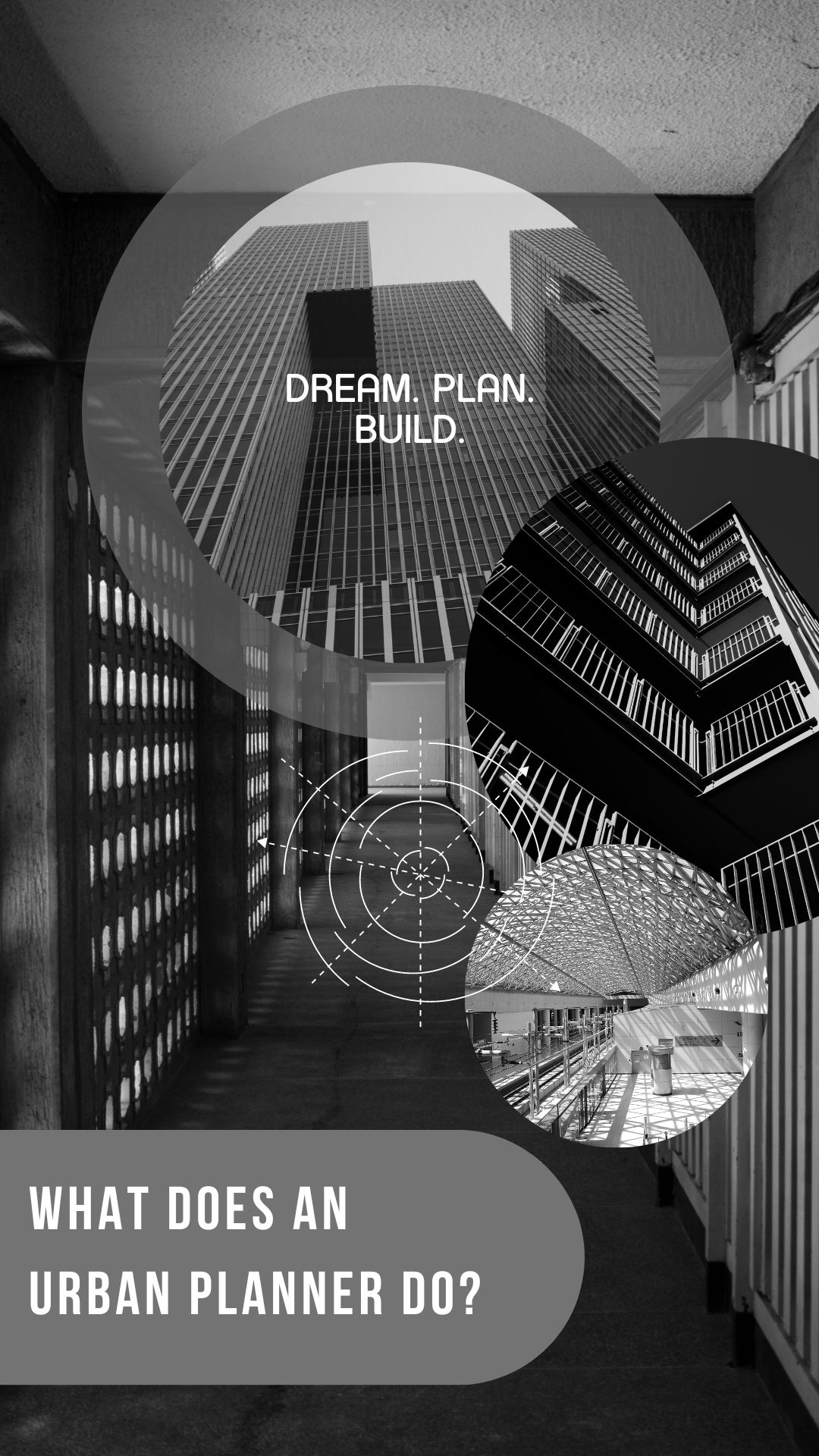What Does an Urban Planner Do?
An urban planner is a professional who helps communities, cities, and regions plan and develop in a way that is sustainable, livable, and equitable. Urban planners work on a variety of projects related to land use, transportation, economic development, and community design.
Roles & Responsibilities
Conducting research and analyzing data to understand the needs and challenges of a community
Developing and implementing plans and policies related to land use, transportation, and other aspects of community development
Working with community members, elected officials, and other stakeholders to gather input and ideas for planning projects
Presenting plans and proposals to decision-makers and the public
Managing projects and coordinating with consultants, contractors, and other professionals to ensure that planning initiatives are carried out effectively
Careers
Urban planners may work for government agencies, consulting firms, or non-profit organizations, and they may focus on a variety of scales, from neighborhood planning to regional planning. The work of an urban planner can have a significant impact on the quality of life for people living in a community, and it can help to shape the built environment for future generations.
Academic Background of Urban Planners
Most urban planners have a bachelor’s or master’s degree in urban planning or a related field such as geography, public policy, or environmental studies. Urban planning programs typically include coursework on a range of topics, including land use planning, transportation planning, environmental policy, community development, and design principles. In addition to coursework, many programs also require internships or practical experience, which can provide valuable hands-on learning and networking opportunities.
A bachelor’s degree in urban planning or a related field is often sufficient for entry-level positions in urban planning, but many employers prefer to hire candidates with a master’s degree. A master’s degree in urban planning typically takes two years to complete and includes more advanced coursework and a capstone project, which may involve conducting original research or developing a comprehensive planning project.
Entry Level Salaries of Urban Planners
The salary of an urban planner in India can vary depending on factors such as the individual’s education, experience, location, and the specific job duties. According to data from Glassdoor, the average salary for an urban planner in India is around INR 5,00,000 per year. However, this figure can be higher or lower depending on the specific circumstances of the job.
For example, urban planners with advanced degrees and more experience may earn higher salaries than those with only a bachelor’s degree or less experience. Urban planners working for large consulting firms or government agencies may also have higher salaries than those working for small organizations or non-profits. Additionally, urban planners working in major cities such as Mumbai, Delhi, or Bangalore may earn higher salaries than those working in smaller towns or rural areas.
It is worth noting that salaries can vary significantly within the field of urban planning, and this information should be considered a general guide rather than a definitive measure of earnings.
Institutions in India Offering Courses in Urban Planning
There are several institutions in India that offer courses in urban planning at the undergraduate and graduate levels. Some of the leading institutions include:
Indian Institute of Technology (IIT) Bombay: IIT Bombay offers a Master of Technology (M.Tech) in Urban and Regional Planning, which is a two-year program that includes coursework in land use planning, transportation planning, environmental planning, and other topics.
School of Planning and Architecture (SPA) Delhi: SPA Delhi is a premier institution for urban planning education in India, and it offers a Bachelor of Planning (B.Plan) and a Master of Planning (M.Plan) in Urban and Regional Planning. The programs cover a wide range of topics, including land use planning, transportation planning, housing and urban design, and environmental planning.
Indian Institute of Technology (IIT) Kharagpur: IIT Kharagpur offers a Master of Planning (M.Plan) in Urban and Regional Planning, which is a two-year program that includes coursework in land use planning, transportation planning, environmental planning, and other topics.
National Institute of Urban Affairs (NIUA): NIUA is a leading institution for urban planning education in India, and it offers a range of programs in urban planning, including a Master of Planning (M.Plan) in Urban and Regional Planning and a Master of Urban Management and Governance (MUMG). The programs cover a wide range of topics, including land use planning, transportation planning, housing and urban design, and environmental planning.
There are also several other institutions in India that offer courses in urban planning, including the Indian Institute of Technology (IIT) Roorkee, the Indian Institute of Technology (IIT) Guwahati, and the National Institute of Technology (NIT) Tiruchirappalli.
Challenges and Opportunities
One of the key challenges facing urban planners in India is the need to balance the competing demands of economic development, population growth, and environmental sustainability. As cities grow and develop, planners will need to find ways to create opportunities for economic growth and job creation while also addressing the impacts of urbanization on the environment and the quality of life for residents.
In addition to traditional planning issues, urban planners in India will also need to address new challenges and opportunities posed by emerging technologies such as artificial intelligence, autonomous vehicles, and the internet of things. These technologies have the potential to transform the way cities function and the way people live, work, and move, and urban planners will need to be prepared to incorporate them into their planning processes.
The demand for urban planners is expected to remain strong in India in the coming years, as the country continues to urbanize and grapple with the challenges of rapid population growth and economic development. Urban planners will be needed to help plan and manage the growth of cities and regions in a way that is sustainable, livable, and equitable, and to address issues such as traffic congestion, affordable housing, and environmental protection.
Overall, the future of careers in urban planning in India looks bright, as the demand for skilled professionals with expertise in planning and development continues to grow. Urban planners will play a key role in shaping the future of India’s cities and regions, and they will be instrumental in creating vibrant, livable communities for all.













